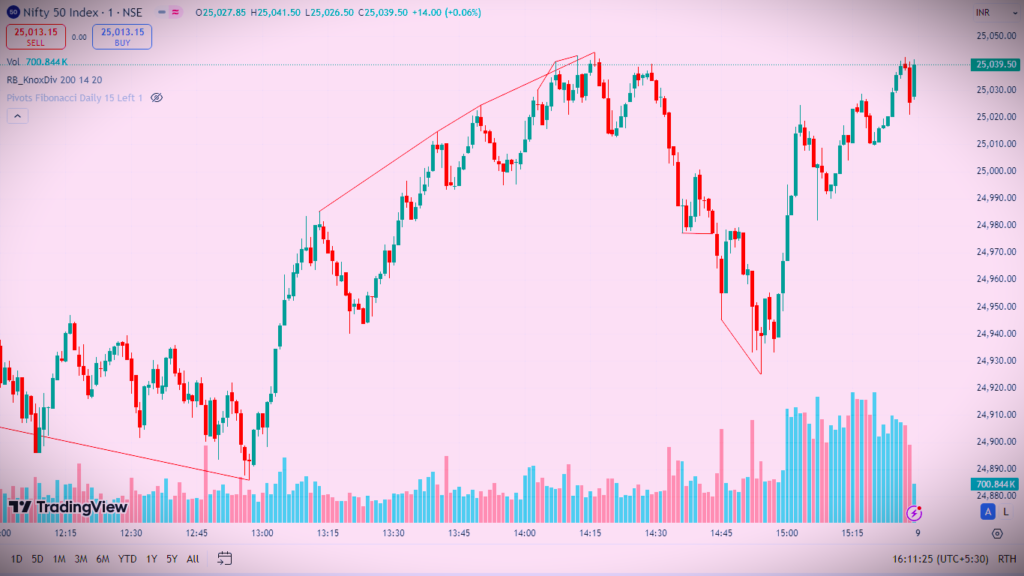The Psychology of Risk: How to Make Rational Decisions in an Irrational Market.
The stock market is a fascinating place, full of opportunities—and pitfalls. It’s a world where news headlines, economic reports, and global events cause prices to swing wildly. Amid the chaos, traders often face one of the biggest challenges: themselves. The biggest hurdle in successful investing often isn’t a lack of knowledge or skill but rather the mental game. The psychology of risk plays a crucial role in how investors behave, and understanding this can help you make smarter, more rational decisions in a market that’s anything but rational.

Why Our Brains Struggle with Risk
Take volatility, for instance. It’s easy to panic when your investments drop, thinking you should sell to cut your losses. But what if the market is simply going through a short-term correction, and selling means you miss out on the rebound? The stock market can make you feel like your financial future is at risk, triggering emotional decisions that aren’t always rational.

Common Psychological Traps Investors Fall Into
Loss Aversion:– We hate losing more than we enjoy winning. In the stock market, this means we tend to hold onto losing stocks too long, hoping they’ll bounce back, and sell winning stocks too soon, fearing the gains will vanish.
Herd Mentality:- It’s human nature to follow the crowd. When everyone else is buying, it feels safer to buy too. When panic sets in, we feel the urge to sell. But the market often rewards those who go against the herd—buying when others are fearful and selling when others are greedy.
Confirmation Bias:- Once we’ve made up our minds, we tend to look for information that confirms our beliefs and ignore anything that contradicts them. If you think a stock will go up, you might focus on all the positive news and dismiss the warning signs.
Recency Bias:- We give more weight to recent events than historical data. If the market’s been on a winning streak, we assume it will keep going up, forgetting that corrections are a normal part of market cycles.
How to Make Rational Decisions in an Irrational Market
So, how can you manage the psychological side of investing and make rational decisions, even when the market is chaotic?
- Have a Plan and Stick to It
One of the best ways to stay rational in a crazy market is to have a solid investment plan in place. Decide in advance what your goals are, your risk tolerance, and how long you plan to stay invested. Having a strategy gives you something to fall back on when emotions are running high. It helps prevent you from making impulsive decisions based on short-term market moves. - Understand Your Risk Tolerance
Not everyone has the same appetite for risk. Some people are okay with big swings in their portfolio, while others lose sleep over small losses. Know what kind of investor you are, and tailor your investments to match your comfort level. This can help you avoid panic-selling or making overly risky decisions in moments of uncertainty. - Diversify Your Portfolio
One of the best ways to manage risk is through diversification. By spreading your investments across different sectors, asset classes, and even geographic regions, you reduce the impact of any one investment tanking. This can help calm your nerves when one part of the market is taking a hit because other parts might still be doing well. - Tune Out the Noise
It’s tempting to react to every headline, especially in our 24/7 news cycle. But most of the time, the market overreacts to news in the short term. Remember that long-term trends are far more important than day-to-day noise. Try not to let sensational news stories push you into making rash decisions. - Embrace Volatility, Don’t Fear It
Volatility is part of the game. The market will have its ups and downs, and trying to time every peak and valley is nearly impossible. Instead, focus on the long-term and understand that market corrections are normal. If you’ve invested wisely, temporary drops can be opportunities to buy at a discount. - Check Your Portfolio Less Often
Constantly checking your portfolio can heighten anxiety and lead to overtrading. Watching the market closely can make you feel every little dip and rise, which triggers emotional responses. If you’ve built a strong, diversified portfolio, you don’t need to check it every day. Give your investments time to grow without obsessing over every fluctuation. - Learn from Your Mistakes
We all make mistakes, especially when emotions run high. The key is not to beat yourself up but to learn from those mistakes. Review your decisions after the fact. Did you sell in a panic? Did you hold onto a losing stock because you didn’t want to admit you were wrong? Reflecting on these decisions can help you make better choices in the future.
Conclusion: Control What You Can
The stock market is unpredictable. No one can control it, and trying to predict its every move will drive you crazy. But what you can control is your own mindset and how you respond to market events. By understanding the psychology of risk and applying strategies to manage your emotions, you can make more rational decisions, even in an irrational market. Over time, this disciplined approach will not only protect your investments but also improve your overall success as an investor.
Remember, in the stock market, your mind is your most powerful tool. Use it wisely.
